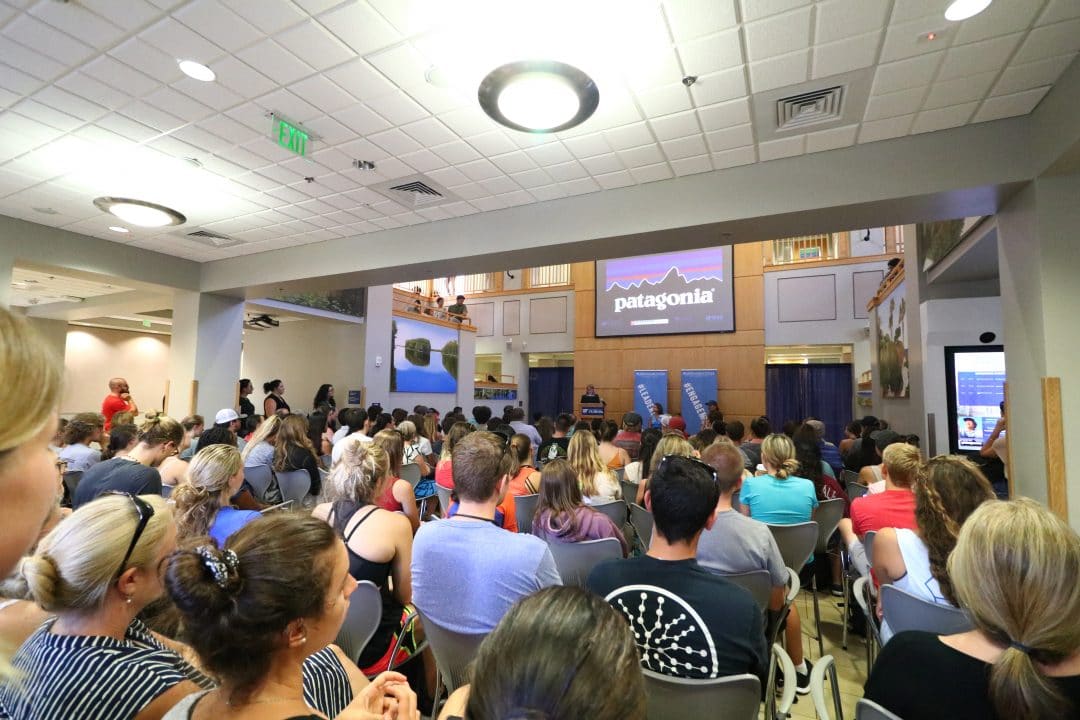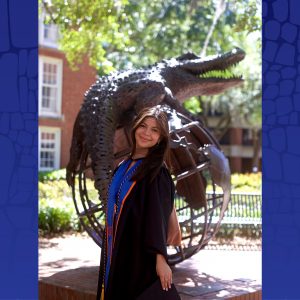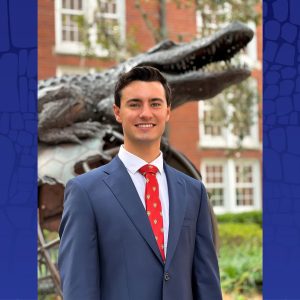Importance of the Social Impact & Sustainability Initiative
Positively impacting the lives of students and the community is a priority at the Warrington College of Business. One of the important ways that happens is through the Social Impact & Sustainability Initiative at UF’s Entrepreneurship & Innovation Center.
The initiative creates opportunities for students to learn how to become changemakers, challenging them to develop skills and strategies of successful business leaders who innovatively and sustainably solve social, environmental, and economic problems. Our students are empowered to become social entrepreneurs who leverage the power of business to positively impact their local communities and the world.
But social entrepreneurship at Warrington isn’t new.
The Past
In spring 2005, UF became one of the first major research universities to offer a course in Social Entrepreneurship. At the time, only a handful of schools including Stanford, Berkeley, Duke, NYU, Harvard, Columbia, and Oxford had programs in Social Entrepreneurship.
In our first calendar year, a total of 73 students in three Introduction to Social Entrepreneurship courses spent over 1,860 hours helping more than 20 ventures in the local community be more innovative, impactful, and sustainable. Also, 250 students attended events or activities in Social Entrepreneurship organized by the Center, and six teams entered the Social Venture category of our Howard Leonhardt Business Plan competition.
In addition to teaching Social Entrepreneurship to undergraduate & graduate students at UF, we created and ran the Young Entrepreneurs for Leadership & Sustainability High School Summer Program from 2007-2016. It was the only summer program in the US where college-bound high school students learned and practiced the skills of successful entrepreneurs and community leaders, while being inspired to solve social, environmental, and economic problems. In 2016, the program received the United States Association of Small Business & Entrepreneurship Education (USASBE) Specialty Entrepreneurship Education Program Award, the highest honor for an entrepreneurship education program and a once-in-a-lifetime accomplishment for the impacts created by the program over its 10-year run. Additionally, Mayor Lauren Poe & the Gainesville City Commission designated July 7, 2016 as “YELS Day,” to commemorate the impact the program made in the local community.
As of Fall 2019 — 14 years following our launch in 2005—over 1,600 students in 36 Social Entrepreneurship-related courses (23 graduate and 13 undergraduate) have spent more than 42,000 hours contributing a value of over $1,012,600 of volunteer time helping more than 60 social ventures in the local community be more innovative and sustainable. Among them: Alachua Conservation Trust, Cade Museum for Creativity & Invention, Fracture, Pure Energy Solar, the Repurpose Project, and the Community Weatherization Coalition.
Today the Social Impact & Sustainability Initiative at UF is fulfilling the mission on which we embarked 14 years ago: It offers students opportunities to get involved in Social Entrepreneurship through courses, co-curricular activities (experiential learning, venture plan competitions, internships, etc.), and extracurricular activities (student organizations, speaker series, and film series).
For example, in the undergraduate Intro to Social Entrepreneurship class, over 100 students work on a project focused on poverty, hunger, and food insecurity. They work with five local nonprofit organizations in the greater-Gainesville community, including Working Food, Grow Hub, Food4Kids Backpack program, and GRACE Marketplace. Students in the graduate classes work on Experiential Learning Consulting projects that target many different issues, including but not limited to: lack of access to affordable healthcare; children & families experiencing homelessness; education, arts & culture; employment & economic opportunities for marginalized populations, and environmental sustainability. It is the combination of the courses and co-curricular activities that most powerfully impacts students’ understanding of critical social and environmental issues and their potential to develop solutions.
Most importantly, we are creating opportunities for students to learn the key skills, mindsets, and competencies of social entrepreneurs by educating, inspiring, and empowering students to become changemakers, who will endeavor to solve social, environmental, and economic problems in their local communities and around the world. And they are our greatest success.
The Future
Moving forward, the initiative is launching two new programs:
1. UF Business for Good Lab: Social Impact & Sustainability Consulting: Working to engage students in the B Economy, “The B Economy is built by everyone who works for, buys from, invests in, learns or teaches about, or supports businesses striving to create a shared & durable prosperity for all.”
Launching in spring 2019, this is a new experiential learning program modeled after the B Corp Clinic at NC State, in partnership with Florida for Good (founded by Gator Grads including Jared Meyers ℅ 1998 of Salt Palm Development & Ken LaRoe ℅ 1992 of First Green Bank, who was recognized in the inaugural Gator 100 class).
2. We are working to create a Social Impact & Sustainability (SIS) Impact Scholars program, where students who complete two core courses and engage in experiential learning consulting projects in the greater-Gainesville community are recognized as “SIS Impact Scholars,” to formalize and recognize their education and experience in social impact and sustainability, as leaders and changemakers. Students who complete the requirements of studying, practicing, and creating impact will be recognized and awarded as SIS Impact Scholars, receiving a certificate for their achievement as well as graduation cords. They will also be called out at the annual Celebration of Entrepreneurship Awards Dinner.
Our accomplishments over the past 14 years are credit to bootstrapping, and thanks to the kindness of many leaders on campus and in our community who have generously given of their time and talent.




